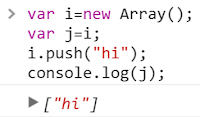Eyo Problems
The most annoying thing in Eyo so far is the fact that I have decided to get rid of linking verbs.
In a nutshell, linking verbs are those verbs that have a subject, verb, and then an adjective or some other kind of modifier.
However, in Eyo I initially thought it would be OK to get rid of linking verbs and make sure the verb to be only accepted nouns like in these scenarios:
Instead, I could take advantage of Eyo's transitive verbs without direct objects being a different verb. "To be" without a direct object is "to exist," so technically the last example could've meant "You exist as dead" or something like that.
In other words, sentences using linking verbs could be done like this:
In a nutshell, linking verbs are those verbs that have a subject, verb, and then an adjective or some other kind of modifier.
I am happy.The bolded text is the subject, the italicized text is the linking verb, and the underlined part is the adjective or modifier.
He is at the park.
The sheep looks fluffy.
However, in Eyo I initially thought it would be OK to get rid of linking verbs and make sure the verb to be only accepted nouns like in these scenarios:
ka se 1 apon.Adjectives instead had to be directly modifying the subject, done by putting them before the subject.
That is an apple.
unorta tu.This might've been OK, but when coming across other linking verbs such as "smell" or "seem," things get problematic, since modifiers can't be direct objects.
You are dead.
Instead, I could take advantage of Eyo's transitive verbs without direct objects being a different verb. "To be" without a direct object is "to exist," so technically the last example could've meant "You exist as dead" or something like that.
In other words, sentences using linking verbs could be done like this:
unorta tu seem.In that case, linking verbs will still exist, but their syntax will be much different than English's.
You seem dead.


Comments
Post a Comment